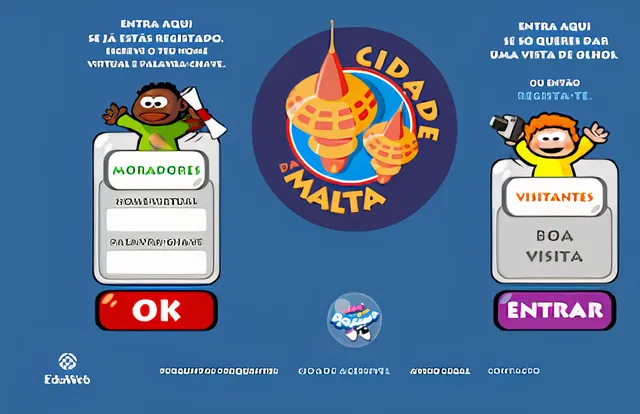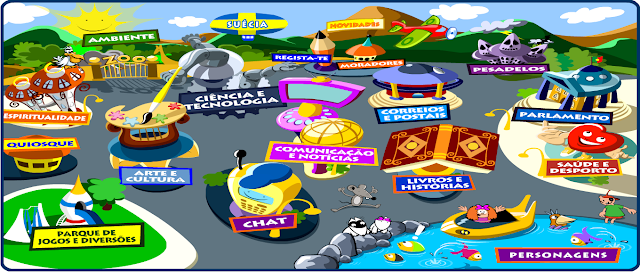Nostalgia — Cidade da Malta
One of the coolest Internet places to be in the early 2000s, served as both an educational and interactive city to chat, play, and meet new people.
If you were born in Portugal in the ‘90s and had access to a computer, you’re most likely to have heard about, played, or known someone who used to spend lots of time logged in on Cidade da Malta.
Created in 1999 under the Aveiro Digital program — an initiative that promoted social, economic, and cultural development, with the goal to modernize services and qualify people in this northern region of Aveiro -, it was originally hosted at cidadedamalta.pt.

Aimed at ages 6 to 15, it was the first children/pre-teen virtual community in Portugal and the first social network for many now grown-up kids.
With a fun look, the portal captured the attention of the youth through colors, images, animations, texts, sounds, and games, stimulating their creativity and concentration. Its content covered complementary and additional information to the one learned at school, stimulating the acquisition of general knowledge by the youngsters.
Besides the main national audience the project was targeted to, the portal also gained international visitors interested in practicing their Portuguese skills.
The name Cidade da Malta, is dedicated to the homonymous chapter of the book “Amizades Virtuais: Paixões Reais” by Paulo Querido about interpersonal relationships in the Web 2.0. In Portuguese, “malta” is an informal word for “people, crowd, a group of friends or colleagues, we” the same way “guys” is used in English.
This virtual space was innovative and way beyond the Internet standards at the time. Children’s safety was also a great concern of the platform and one of the key selling points for which it became known and still is remembered.
I was lucky to get in touch with Dionisia Laranjeiro, the creator and project manager of Cidade da Malta.
“Alongside a team of designers, illustrators, animators and programmers who’d weekly introduce new things, there was also a person responsible for the content, who created new texts and answered to residents. At the same time, the city was monitored and issues were solved.
The city had a life of its own and a big part of its dynamics came from the residents, who continuously made development suggestions and sent works. The largest participation would be happen at the parliament, in which residents could create their own party, present an electoral program and vote for the city’s government.
Cidade da Malta wouldn’t have been possible without the support from the director of the Autor’s company, who believed in and invested in the project, without any certainty about the future of the investment.”
In 2005, the virtual community had more than forty thousand registered users. More than 1.500 of them met in real life for a weekend filled with games and attractions at the first national meet-up in Aveiro of the same year.
The project came out as a success, won several awards, and caught the attention of Oni Telecom who acquired the portal and continued to develop it for a a little longer. Due to an economic crisis at the time, the company located in Aveiro ended up closing, and after the project was transferred to another team in Lisbon, it sadly got discontinued.
Inside the city, each user had its own house able to be customized, there were different neighborhoods, and within the varied themed areas including Sciences and Technology, Arts and Culture, Environment, Health, Sports, Communication, Cultural Diversity, Spirituality, Politics — one per building-, many activities to spark in the kids’ interest for politics or debate about social topics. You could level up and gain access to more things the more prizes (patins) you had by participating in different contests.

The residents could still interact with a movie museum, a journal, a radio, art and poetry contests, playgrounds, a post office, a library, a store, forums, environmental awareness activities, programming tutorials (HTML), first aid courses, and there was even the option to apply and vote for a government to manage the neighborhoods according to the approved electoral program.
Besides being simple and intuitive, interactive cities make great educational online games because they help “kids develop big picture thinking styles where they learn how specific actions affect a larger system such as an entire city.” — Yu-Kai Chou. Similar to Cidade da Malta, many other social platforms already existed outside Portugal where the same user base was likely to be found. Club Penguin, Neopets, hi5, or Fantage are some examples.
Special thanks to Dionisia Laranjeiro.